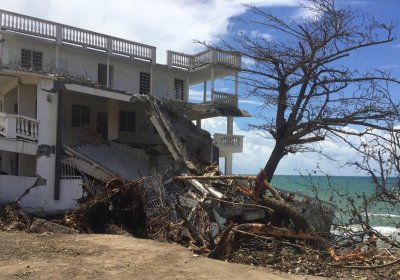A new report argues that progressively taxing the world’s seven biggest oil and gas companies would raise significant funds to pay for the losses and damages caused by climate disasters, reports Ben Radford.
extreme weather events
The blackout that engulfed Puerto Rico when Hurricane Fiona laid bare the impacts of austerity and privatisation carried under United States fiscal control, reports Barry Sheppard.
Climate change has the potential to bring about an overall break-down in important ecological and social systems, including agriculture and food production. Alex Bainbridge reports.
The severe Arctic blast and storms that hit the central part of the United States are another example of extreme weather due to climate change, writes Barry Sheppard.
The Australia Institute (TAI) released its latest annual Climate of the Nation 2019 report on September 10. The annual report, first produced by the Climate Institute and for the past two years by TAI, has been tracking attitudes on climate change for more than a decade.
[Ross Garnaut is a Professor of Economics at the Australian National University. In 2007 he was appointed to examine the impacts of climate change on the Australian economy and recommend medium to long-term policies and policy frameworks to improve the prospects for sustainable prosperity. The Garnaut Climate Change Review was finalised on September 30, 2008, with an update released on May 31, 2011. This is a speech given by Garnaut to the renewable energy summit hosted by the South Australian government on October 6.]
* * *





